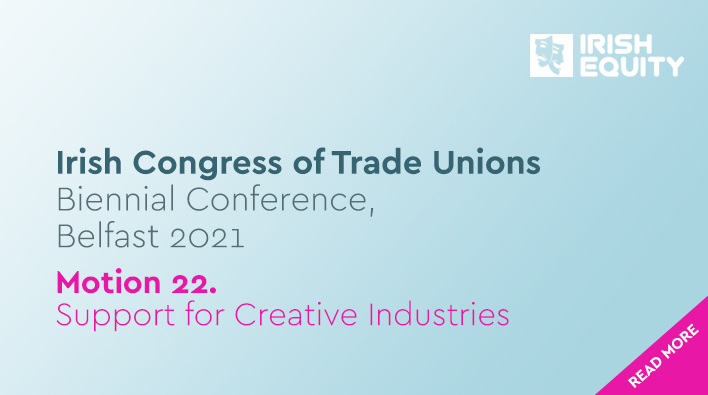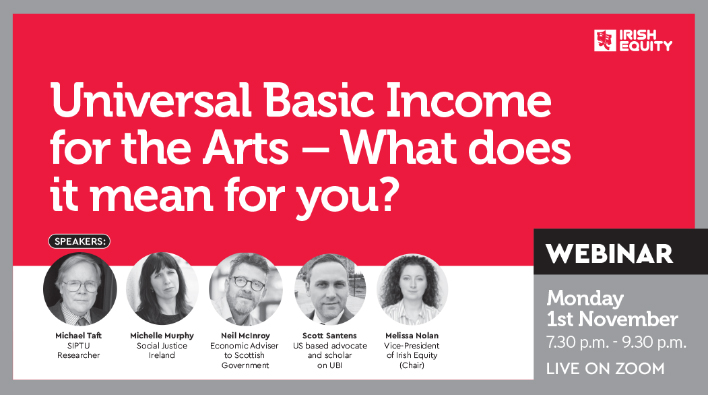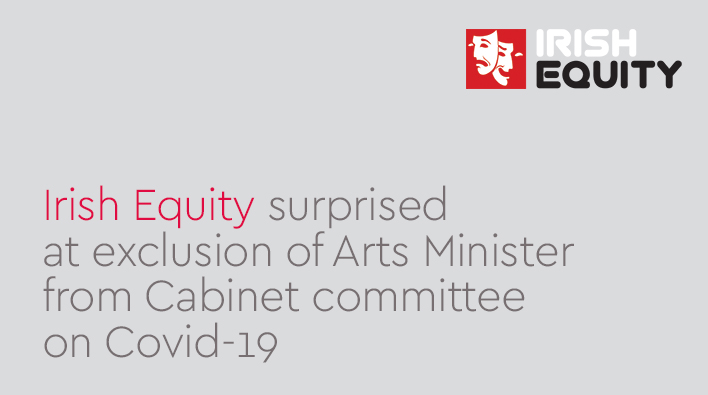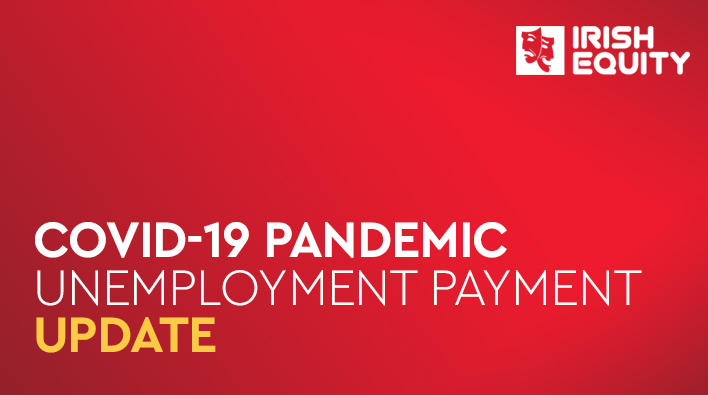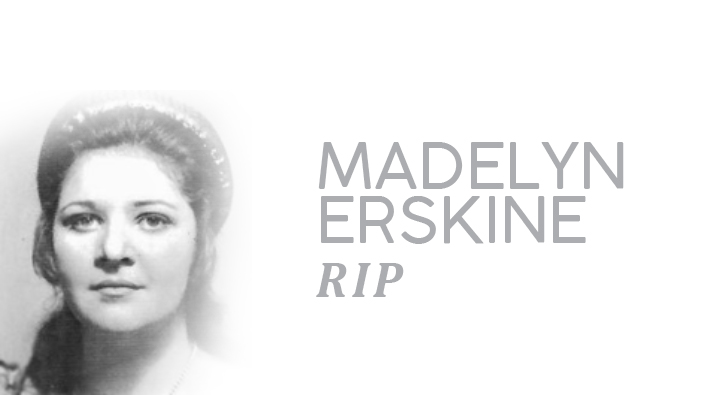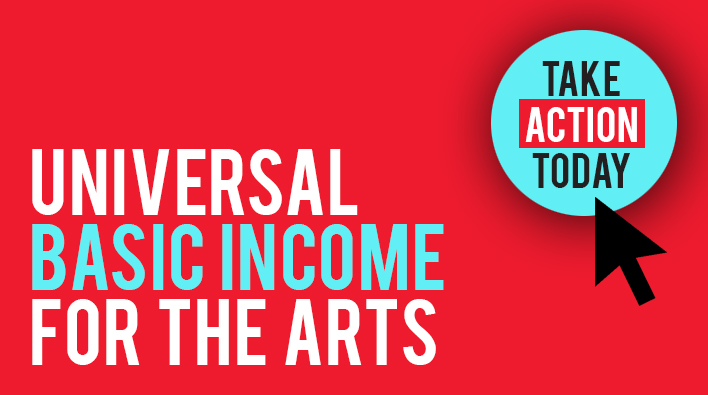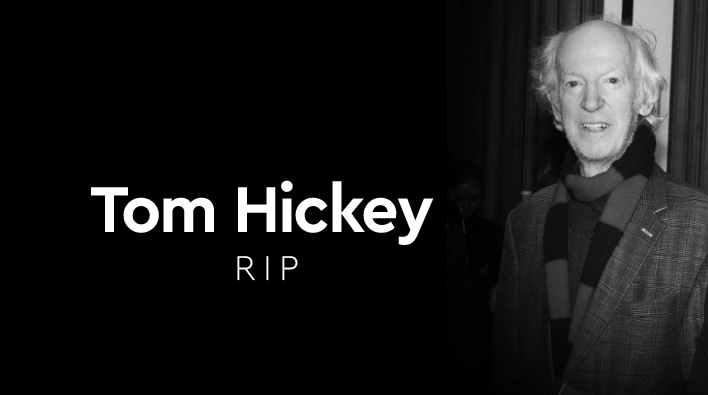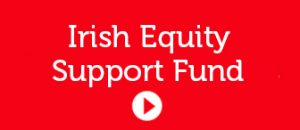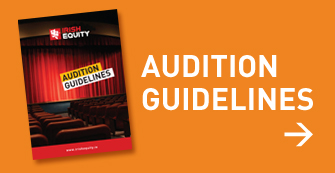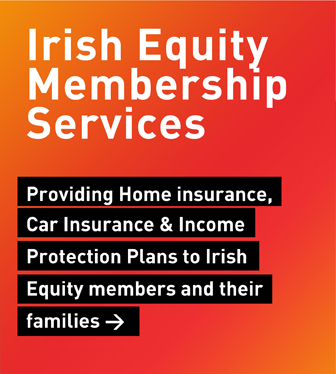ICTU Biennial Conference, Belfast 2021
By Gerry O’Brien —
I had the pleasure to second a motion proposed by our colleagues in Equity (UK) at the Irish Congress of Trades Union biennial conference in Belfast last week. The motion was proposed by the Northern Irish executive of Equity which is affiliated to Congress. This motion was adopted unanimously and now brings the two unions, Equity and Irish Equity, closer in their shared aim of protecting the rights of performers working on international co-productions in Ireland. All unions are stronger when they work together for the benefit of our members and it is important that we do not become the weak link that undermines the hard fought for agreements of our colleagues in Northern Ireland, Scotland, Wales and England.
My colleague, Alan McKee of the Northern Ireland Executive of Equity, in addressing the motion paid tribute to Halyna Hutchins, the cinematographer, who’s life ended so tragically on the film set of a movie on which she was working recently in the US. He explained the tradition in our industry that performers and creatives celebrate the passing of one of our colleagues with applause for a life well lived. Congress gave Halyna Hutchins a resounding farewell.
The motion read as follows:
22. Support for Creative Industries
The challenges of Brexit and the Covid-19 pandemic have highlighted the need for ongoing co-operation between Equity and our ICTU comrades in Irish Equity. While cross border work in the creative industries provides work opportunities for members of both trade unions, there must be a strong, united effort to prevent any deterioration of working conditions and to reinforce the protections provided by union negotiated agreements, especially as an increasing number of foreign production companies seek to operate in both the Republic of Ireland and Northern Ireland. The ICTU commits to working closely with creative industries unions to protect the shared interests of our members across the island of Ireland.
Seconding the motion, Gerry O’Brien, President Irish Equity said:
“As we face into what will most likely be a record year for film production across the island of Ireland, we must strive to ensure that those hard fought for agreements gained by our comrades in Northern Ireland , Scotland , Wales and England are not undermined by the undervaluing of the rights of our members. The global hunger for content for an already insatiable international distribution network has seen an assault on the rights of performers with regard to their participation in the financial success of productions globally. We must ensure that where public funds are made available to international media conglomerates through local film companies that the performance and property rights of all performers are valued equally. As a performer and a union activist, I have witnessed what can happen internationally when local producers demand that we, as performers, subsidise their version of the audiovisual industry by accepting terms and conditions that deny, or through abuse of dominance, minimise the value of our right to residual payments for the ongoing exploitation of our recorded work.
We as performers, by virtue of legislation, have a 50 year stake-holding in the revenue streams created from the success, and excellence, of our work. How that is extracted and made payable to our members requires a very specific form of negotiation that is informed by not just the working time act but also copyright and contract law.
The pressure to minimise the rights of performers across every aspect of their employment and the assignment of their rights is enormous. The need to control ownership of all intellectual property, including that of the performer, is the current great ‘land grab’ of our industry. A union that represents performers must have an insight into, not just of what happens at the point of production, but also how the distribution system works and how we extract the maximum benefit from the revenue streams created. It is a complex challenge.
But this is not only about our livelihoods. It is also about the importance of strong unions working together to ensure that we remain safe in our work environment. Sadly, the headlines of the last few days demonstrate what can happen in the rush to create content as cheaply as possible. It is unthinkable that the telling of a story should cut short the ultimate story of a human life.
All unions are stronger when they stand together to protect the rights of their members, so on behalf of the members of Irish Equity and their executive we endorse the motion of our sister union and call on Congress to support our efforts to end the inequity that currently exists within the audiovisual industry on this island. We are proud to second the motion.”
Webinar on Universal Basic Income
Irish Equity Webinar:
Universal Basic Income for the Arts – What does it mean for you?
Monday 1st November 2021 from 7.30pm – 9.30pm
If you wish, please join us for this important information webinar on Universal Basic Income (UBI) for the Arts.
The webinar will endeavour to give attendees a better understanding of what UBI means for them.
Please note registration will close at 3.00 p.m. sharp on Monday, 1st November 2021. The link to the webinar will follow shortly after registration has closed.
Interested in attending the event?
Irish Equity surprised at exclusion of Arts Minister from Cabinet committee on Covid-19
The Executive of Irish Equity have expressed surprise and disappointment at the exclusion of the Minister for Tourism, Culture, Arts, Gaeltacht, Sport and Media, Catherine Martin, from the Cabinet sub-committee on Covid-19.
At a meeting of the Executive of Irish Equity, today (Thursday, 19th August), the group, which represents thousands of professionals in the live performance and theatre sector, discussed the exclusion of the Minister which oversees the industry from this crucial sub-committee.
Irish Equity President, Gerry O’Brien, said: “Our Arts were one of the first causalities of the pandemic. While it is beyond disappointing that the Government are yet to provide a roadmap for the reopening of the sector, it is unforgivable that the Minister charged with the production of that roadmap does not yet have a seat at the table where crucial decisions on its future are made.”
Irish Equity Executive Member, Ann Russell, said: “The Arts have helped sustain us during the darkest days of this crisis. It is now time for our Government to send a very clear message of solidarity to artists and arts workers. We need an immediate roadmap to reopening so that the sector can start to prepare for the necessary rebuilding.”
Equity Organiser, Martin O’Rourke, said: “A critical component of any road map for the Arts should also include the pilot of a Universal Basic Income scheme for the sector as promised in the Programme for Government and also in the recent report of the Arts and Culture Recovery Taskforce published in November 2020.”
Covid-19 Pandemic Unemployment Payment Update
We were in contact with the Department of Social Protection recently in relation to a query regarding freelance workers and the Pandemic Unemployment Payment (PUP).
We received the following information in response:
The amount anybody can earn through self-employment over an eight-week period and retain their full COVID-19 Pandemic Unemployment Payment is up to €960 gross.
The €960 limit is based on gross income (before tax and PRSI) minus expenses:
- They do not need to formally apply to or notify the Department that they wish to avail of this earnings allowance of up to €960 gross earnings over an eight-week period as a self-employed person while retaining their PUP payment. However, they must retain evidence of their earnings and have them available for inspection as they may be asked to provide these in future
- They must also ensure that their earnings are within the threshold of €960 over an eight-week period and must stop their PUP payment should their earnings go above this level
Please note that where they may be working part-time (up to 24 hours per week in self-employment), but are earning more €960 over an eight-week period, a new scheme, the COVID-19 Part Time Job Incentive for the Self-Employed is a further support available to self-employed people who are in receipt of the COVID-19 Pandemic Unemployment Payment or a Jobseeker’s payment and are resuming self-employment part time.
There are a wide range of income supports available to a self-employed person from the department.
Please click the links above for more information.
Should you have any further queries please contact artistspup@welfare.ie
Madelyn Erskine – A Tribute
Born into a theatrical family in Dublin c. 1949, her father was actor Eric Erskine and her brother Julian Erskine. Madelyn began her successful career in the Killarney Repertory Company in 1968. Leading roles followed in It’s a two-Foot-Six-Inches-Above the-Ground World and One Flew over The Cuckoo’s Nest, in the Olympia Theatre. Fine performances in Children of a Lesser God, Tartuffe, and a long run in Goodbye to the Hill, followed. In the 1980s, she toured Hong Kong in Romeo and Juliet. She also performed in many TV and Film Productions, Notably, The Greening of America, The Riordans, The Last of Summer and The Spike. In 1986, Madelyn moved to Dundee and soon made a mark in Bailegangaire and The Sash in Glasgow and toured with the Tayside Theatre Company. Madelyn returned to Dublin the 1990s. She was an active member of Irish Equity for many years, a great colleague and respected by everyone she worked with. She possessed a strong stage presence and became a character actress of some significance. Madelyn will be greatly missed by all of her family, friends and fellow actors, following her death on the 9th June 2021
GIG for GAZA
A fundraiser organised by the Musicians Union of Ireland & SIPTU with proceeds to the Middle East Children’s Alliance. Live on YouTube & Facebook this Monday (31st May) from 8pm.
Please donate what you can here https://www.facebook.com/493286394336108/posts/1525948087736595/?d=n
Universal Basic Income for the Arts
Workers in our arts, culture, live performance and events industry need this emergency support if they are to survive this crisis and rebuild our creative futures to sustain and unite people in a post covid world. Sign the petition today.
Tom Hickey – A Tribute
The passing of Tom Hickey, an Actor and Director of such special qualities, has left the theatre world bereft of a very special talent. The dedication towards his chosen profession that Tom showed, produced a lengthy, successful career and the well-earned respect of peers and audiences alike.
His training, and subsequent involvement with Deirdre O’Connell at the Focus Theatre, paved the way for the success he gained in all aspects of the profession. His unselfish approach manifested itself with his founding of the Four in One Players, and his involvement in the Project Arts Centre, that created employment for so many actors over the years. Even when he was heavily involved in becoming a household name as Benjy in RTE Television’s, The Riordans, he still found time to mount extensive and long-running theatre tours.
His monumental performances in the plays of Tom Murphy, Frank McGuinness and Tom McIntyre, won him deserved awards, but Tom remained a true colleague, retained his great sense of fun and his wonderful sense of the absurd. The intensity of his performances were well tempered by his off-stage humour and camaraderie. To really get to know someone, you have to live closely with them for a prolonged period of time, and touring with Tom was always eventful, fun-packed and never dull. Working with him was a joy, watching him perform, a transportation into the world he had fashioned from the anvil of a marvellous ability.
Tom thoroughly merited the accolade of “one of Ireland’ greatest actors”, and has left an immense legacy, not only in the volume of work he produced, but also in the number of performers who learned so much from him and, to whom he meant so much.
“What feats he did…be in our flowing cups, freshly remembered!” (Henry V)
Laurence Foster
May 2nd 2021
